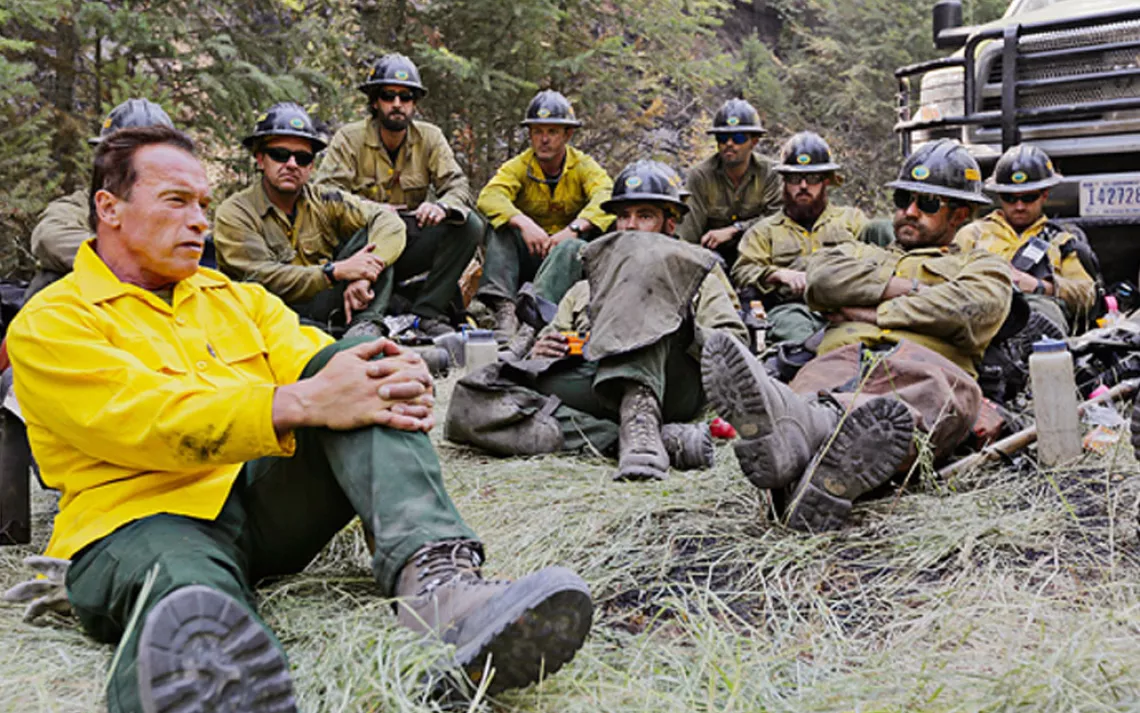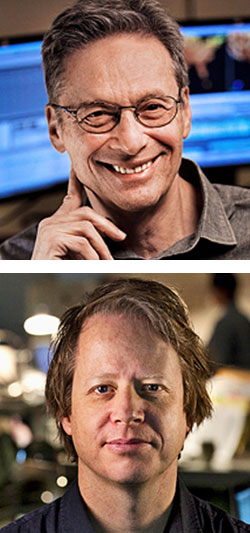Big Celebs for Big Problems

Arnold Schwarzenegger hangs out with firefighting "hotshots" in Years of Living Dangerously, a new series by David Gelber (top left) and Joel Bach (below). | Courtesy of The Years Project/SHOWTIME

How did this high-profile cast and crew come together?
JOEL Bach: David and I had been at 60 Minutes, and we knew that having correspondents engage with people was a storytelling model that works. We thought, "Wouldn't it be cool to have some big celebs pull off the job of being Mike Wallace?"
What will compel the average viewer to watch?
David Gelber: Storytelling with great characters makes a huge difference, and so do stories with uncertain outcomes. I always remember what60 Minutes creator Don Hewitt said to me when I wanted to do a story about acid rain in the 1980s: "We don't do stories about acid rain. We do stories about people who do something about acid rain."
With Cameron, Weintraub, and Schwarzenegger involved, it sounds like there will be explosions.
Bach: We don't have explosions, but we do have Arnold Schwarzenegger joining a team of wildland firefighters. Arnold's right with them on the fire line. We have aerials and multiple cameras. It brings this big exciting look to a news documentary.
What impact do you hope this series will have that other climate documentaries haven't?
Bach: We're hoping to have people turn on the TV and see Matt Damon and wonder, "What movie is this that Matt Damon's in?" Quickly they realize he's playing himself, investigating heat waves and the number of people they're killing. In North Carolina, this young activist is trying to shut down a coal plant in Asheville. At the same time, she's trying to convince her dad, an evangelical preacher and climate change skeptic, that this is a real problem. The story is, can the daughter convince the father that climate change is real?
Does the science ever get lost with a celebrity cast?
Gelber: The correspondents aren't the scientists. They ask the questions that any skeptical layperson would ask. Matt Damon is as good a questioner as anyone on 60 Minutes.
Bach: We engaged with top scientists at every step. We've found climate scientists who are not only leaders in their field but also wonderful communicators.
How do you present the ongoing effects of climate change when it's hard to pin specific weather events to long-term climate trends?
Gelber: It's not that hard. We know that wildfires have increased exponentially because of climate change. There's clear science tying early snowmelt to the extension of the fire season. Even with Superstorm Sandy, there's scientific consensus that the storm surge was higher than it would have been were it not for anthropogenic climate change.
Bach: Our story in Texas with Don Cheadle opens with the impact of a drought on a meatpacking plant. Cargill's largest plant shut down about a year ago because of the drought. The question that he goes into Texas with is "Did climate change have a role in causing 2,300 people to lose their jobs overnight?"
What caused your environmental awakening?
Bach: Growing up in Colorado in the 1980s, we would see the snow retreat every year on Mt. Sopris. We didn't know what it meant. It was dramatic and it freaked us out.
Gelber: I grew up in Elizabeth, New Jersey, in the middle of Cancer Alley. I came down with kidney cancer about 25 years ago, which made me think a lot about what we're doing to the environment. That was a wake-up call.
What's your environmental vice?
Gelber: I have one that applies to both of us. Jim Cameron would say our biggest vice is that we're not vegans. Especially Joel. You show him a steak, and he's an animal.
 The Magazine of The Sierra Club
The Magazine of The Sierra Club